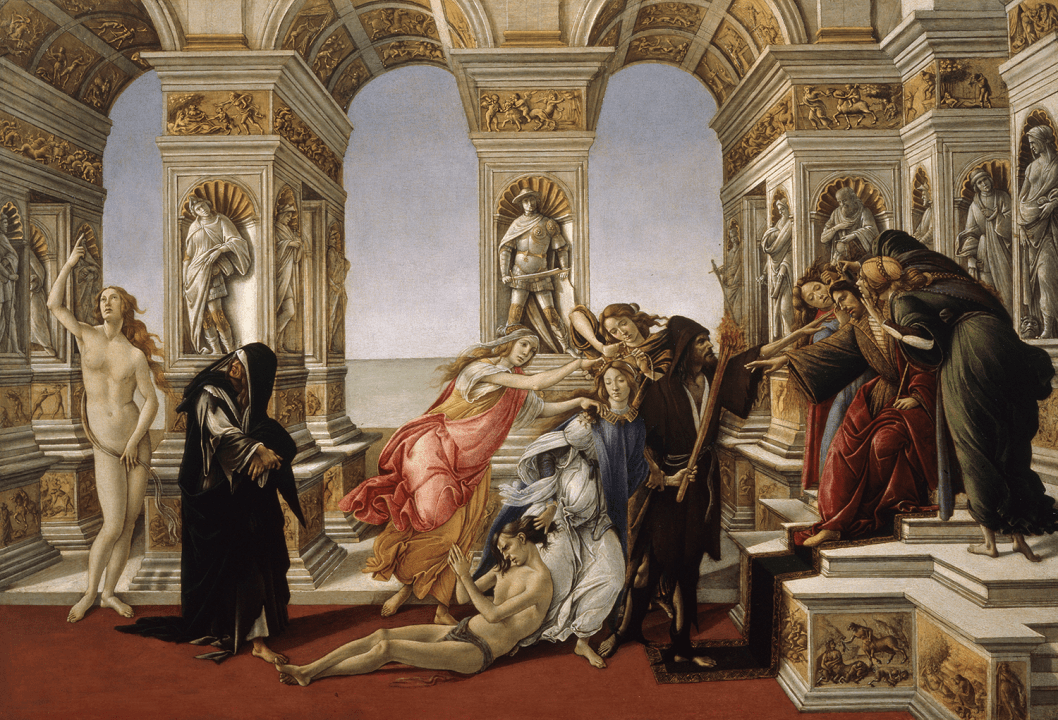
How did a myth about the consequences of poor judgment become a parable for aspiration? The question is posed by the Greek writer-actor Alex Andreou in his fabulously entertaining new podcast. His topic is the ancient myth of Midas, king of Phrygia, who was granted his wish to have everything he touched turn to gold. Midas’s new world was brilliant for all of five minutes. What is a man to do with piles of metal when every person he comes into contact with is reduced to the same?
The Midas myth has been mangled many times; Andreou recalls that Donald Trump co-authored a book in 2011 entitled Midas Touch in which he promised to reveal the secrets to entrepreneurial success. After much research, Andreou concludes that the story began to change from one of a tragicomic curse to a covetable superpower with the launch of HMS Pactolus in 1813 – the ship was named after the river in which the Anatolian king attempted to wash away his powers.
While the trailer to Podyssey suggests a slippery format, anticipating coverage of all things Greek from ‘pathos’ and ‘hubris’ to ‘sour grapes’, the focus so far has been on mythological characters. As well as Midas, the first four episodes have introduced Narcissus, Orpheus and Persephone. Andreou spends about 20 minutes retelling the stories of each before pulling the narratives apart to see how they have been romanticised or contorted down the centuries.
His interpretations are often unexpected. Orpheus was historically admired for his attempt to retrieve his wife Eurydice from the Underworld. Not so in Andreou’s books. Did Eurydice even want to be rescued? A psychoanalyst interviewed for the series goes so far as to discern a ‘coercive, controlling pattern of behaviour’ in Orpheus and his fixation with his own pain. Andreou makes the valid point that Eurydice would have drunk from the River Lethe, which brought forgetfulness, and might therefore have been oblivious as to who Orpheus even was. The storytelling is lyrical – don’t miss the description of Narcissus echoing Echo – as well as humorous. Zeus is ‘the big feta of Olympus’ and Midas an inoffensive ‘Phrygian Theresa May of sorts’. Characters develop not ‘donkey ears’ but ‘asinine abominations’. There may be one too many dating-app jokes – Narcissus is ‘a merciless left-swiper’ – but most of the one-liners sing. It is good to hear the Greek myths retold by someone Greek, with the correct pronunciations, great pacing and well-judged musical interludes.
With Greek myths dominating the screen, from Uberto Pasolini’s The Return to Christopher Nolan’s forthcoming The Odyssey, it is heartening to find old stories being adapted for audio with equal ardour. Live from Mount Olympus is aimed predominantly at younger listeners. Funded by the Onassis Foundation to accompany a new curriculum of Greek myths in US secondary schools, it has the merit of not sounding educational. Now in its sixth series, it has featured cameos from Isabella Rossellini and Anna Kendrick, and the main parts are read by Broadway actors directed by Rachel Chavkin of Hadestown fame.
It is good to hear the Greek myths retold by someone Greek
The new episodes riff on the myth of Theseus and Ariadne. The former is one of 14 Athenian youths sent to Crete to feed the Minotaur. The latter is the princess destined to fall in love with him. So far, so Greek, but then it turns very American. No longer are the Athenians a mere ‘tribute’ to be paid. The teenagers who accompany Theseus across the seas are the ‘Tributes’ preparing to play, not a ball game, but a bull-game.
Observing the action from Mount Olympus are the frustrated teenager Eros, his mother Aphrodite and Hermes, the messenger god-turned-narrator. Eros is impatient to fire his arrows and make Theseus and Ariadne kiss. ‘Get a life, Mum,’ he whines when told off. ‘Or at least get a sense of humour.’
This isn’t a podcast for purists, either of Classics or the English language. Theseus ‘got jokes’, ‘has moves’ and quickly falls into ‘some kinda trance’. But you cannot help but appreciate the clever blend of myth and history. The Ariadne story provides the opportunity for a foray into Bronze Age Minoan culture and the mysterious phenomenon of bull-leaping. Whole scenes are crafted out of recognisable ancient wall frescoes. It transpires that Ariadne is a snake-goddess, like the sculptures of women with serpents writhing around their arms excavated at Knossos. It is all very wholesome and lively.








Comments